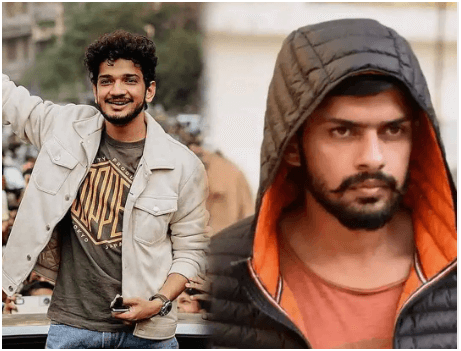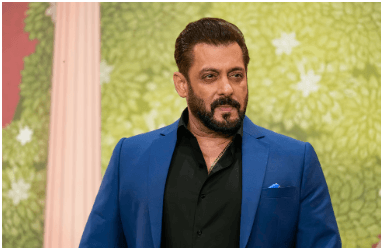Munawar Faruqui, Stand-up comedian has found himself in a precarious situation recently, reportedly landing on the hit list of notorious gangster Lawrence Bishnoi.
This alarming development has raised significant concerns regarding the safety and freedom of expression for artists in India, particularly those who engage in satire and political commentary through their craft. Munawar Faruqui troubles stem from a combination of his provocative humor and his ability to draw attention to sensitive societal issues, which has led to backlash from various quarters, including criminal elements within the country.
The backdrop of this tension lies in Munawar Faruqui career trajectory. Once an underground comedian performing in small venues, he has risen to prominence in India’s comedy circuit. Known for his sharp wit and incisive social commentary, Munawar Faruqui performances often challenge societal norms and political narratives. This willingness to tackle controversial topics has garnered him a substantial following but has also made him the target of hostility from those who take offense at his jokes.
Munawar Faruqui legal troubles began in early 2021 when he was arrested during a show in Indore for allegedly hurting religious sentiments. The incident was marked by a series of protests and demands for his arrest from right-wing groups who claimed that his jokes were offensive. Despite his release on bail, the incident underscored the precarious position of comedians in India, where political and social commentary can lead to violent backlash and legal repercussions. The threat from Lawrence Bishnoi, a criminal figure with a reputation for targeting those who cross him, has added a new dimension to the risks Munawar Faruqui faces as a comedian.
The Bishnoi gang is notorious for its criminal activities and has been linked to several high-profile cases in India. Lawrence Bishnoi himself has gained notoriety for his aggressive tactics and willingness to silence those he perceives as threats. This includes a range of actions, from intimidation to outright violence. His interest in targeting Faruqui is believed to be rooted in the comedian’s jokes and comments, which have allegedly offended certain groups associated with Bishnoi. This situation raises alarming questions about the safety of individuals who dare to express dissenting views in a society increasingly polarized by political and religious sentiments.
Munawar Faruqui case is emblematic of a larger issue facing artists and intellectuals in India today. The rise of right-wing extremism has created a climate of fear for those who dare to critique the status quo. Comedians, writers, and filmmakers are increasingly finding themselves in peril, with many facing threats, legal challenges, and even physical harm for their work. The trend has fostered an environment where self-censorship becomes a survival tactic, limiting the scope of artistic expression and stifling dissent.
Public response to Munawar Faruqui situation has been mixed. Many of his fans and supporters have rallied around him, condemning the threats to his life as an attack on freedom of speech. They argue that Munawar Faruqui ability to provoke thought and spark dialogue through humor is vital for a healthy democratic society. Conversely, there are segments of society that support the notion of silencing voices they consider offensive, often invoking religious or cultural sensitivities to justify their stance.
The implications of this situation extend beyond Faruqui himself. His plight highlights the risks faced by comedians and artists in India, where the boundaries of acceptable discourse are constantly shifting. It raises important questions about the role of comedy in society and whether it can survive in an environment where dissent is met with violence and intimidation. For many, Faruqui represents the struggle of a new generation of artists who are pushing against the constraints imposed by traditional norms and expectations.
The issue has also sparked debates on social media, where discussions about free speech, artistic freedom, and the right to dissent have gained traction. Hashtags supporting Faruqui have trended, and many users have expressed solidarity with him, calling for an end to the culture of fear that has gripped the artistic community in India. The online discourse reflects a growing awareness and concern regarding the threats faced by individuals who engage in critical dialogue about society and politics.
In light of the escalating tensions, authorities have been urged to provide protection for Faruqui and ensure his safety. Activists and concerned citizens have called for a comprehensive examination of the threats posed by organized crime to artists and other public figures. They argue that allowing such threats to go unchallenged sets a dangerous precedent and undermines the foundations of democracy and free expression.
As Munawar Faruqui navigates this perilous landscape, the broader implications of his situation remain at the forefront of public discourse. The intersection of art, politics, and crime in contemporary India raises pressing questions about the future of free expression in a country where diverse voices are increasingly at risk. Munawar Faruqui story serves as a reminder of the vital role that comedians and artists play in challenging societal norms and fostering dialogue, but it also underscores the grave dangers they face in doing so.
Ultimately, the situation surrounding Munawar Faruqui and Lawrence Bishnoi is a reflection of a larger societal struggle. It brings to light the ongoing battle between freedom of expression and the forces that seek to suppress dissent. As Munawar Faruqui story unfolds, it will undoubtedly continue to captivate the public’s attention and spark conversations about the role of art in society, the importance of protecting free speech, and the need to confront the rising tide of intolerance that threatens to silence diverse voices in India.
In the coming days, as the legal and social ramifications of this incident continue to evolve, the fate of Faruqui will remain a point of interest for many. His ability to navigate the treacherous waters of fame, coupled with the support of his fans and advocates, will be critical as he seeks to reclaim his narrative and continue his work as a comedian. As the situation unfolds, it serves as a potent reminder of the complexities and challenges faced by artists in a world where laughter can sometimes attract the ire of the powerful. The need for solidarity and vigilance in the face of such threats has never been more pressing, as the fight for artistic freedom and the right to speak out continues to resonate across India and beyond.
Stay informed with the latest updates- click here





